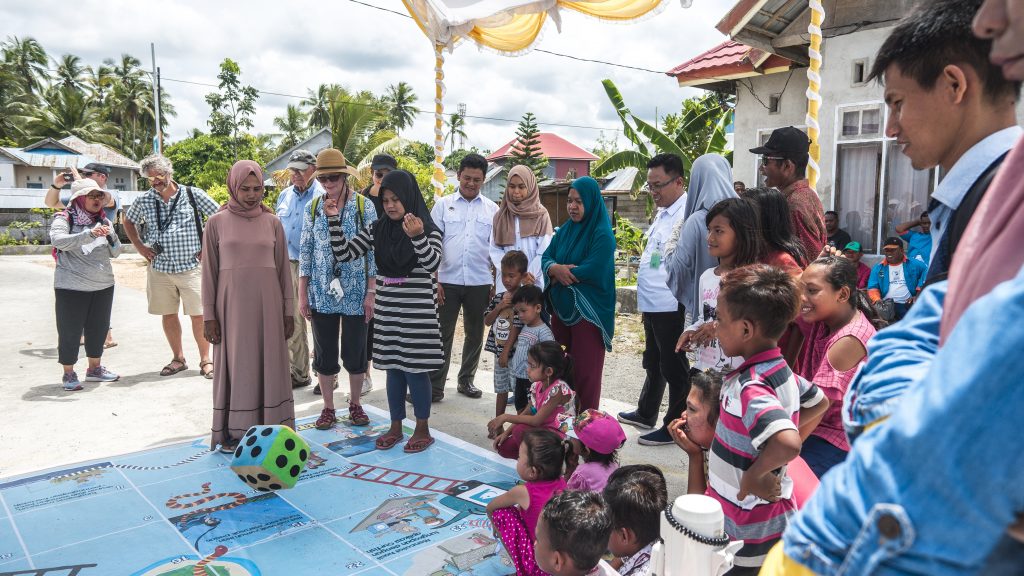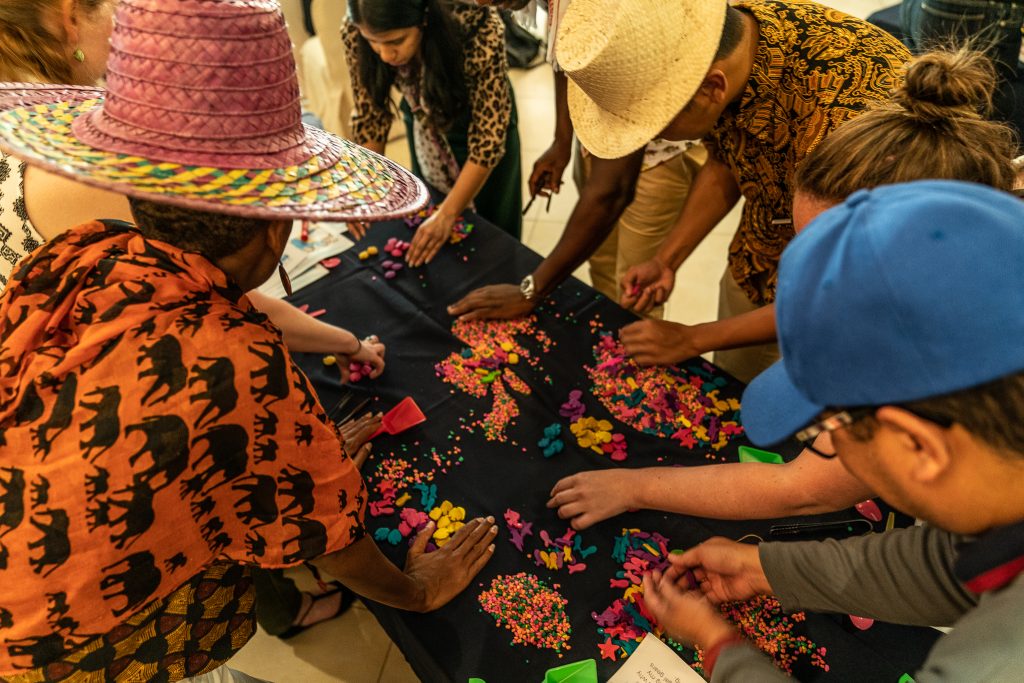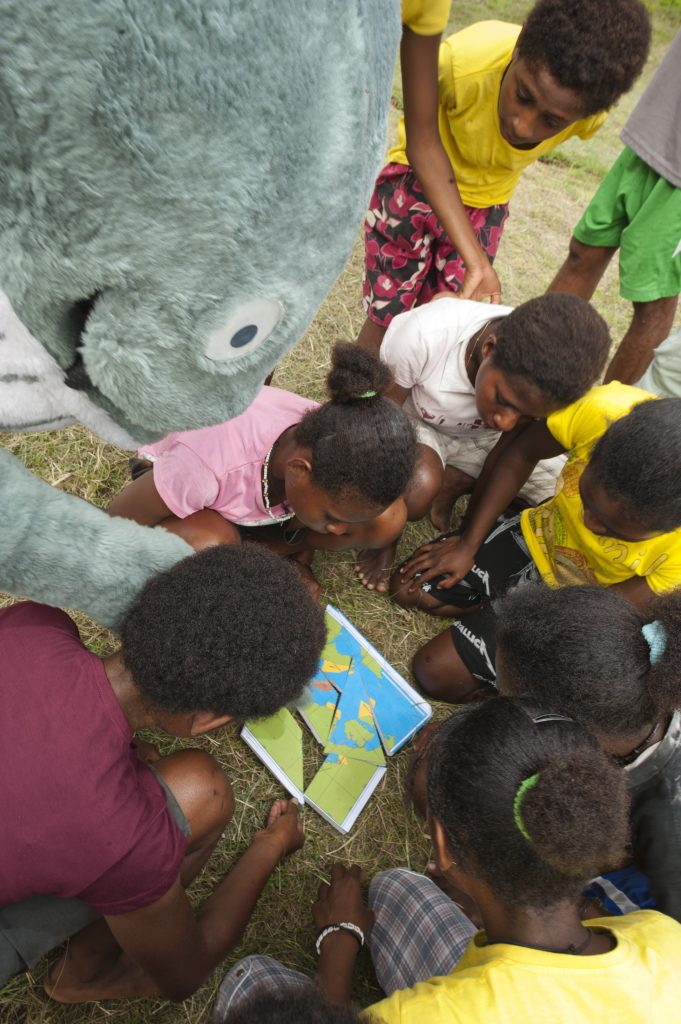What do fisheries management, costumes, social influences, larval dispersal, chopsticks, and emotional appeals have in common?
For Rare, they are the various ‘game pieces’ we use to inspire coastal fishing communities and their local leaders worldwide to adopt responsible and sustainable fishing behaviors and practices.
Most people like games. At Rare, we regularly use games with our staff and communities where we work as a powerful tool for learning. They can deepen our understanding of social issues, help us build empathy for others, and allow us to transform our reality, if even fleetingly.
For our global coastal fisheries program, Fish Forever, we use games to model real-life scenarios. Community members and local leaders can experiment with new ways of tackling the tough challenges they face in their everyday lives.

One scenario common to resource users worldwide is the Tragedy of the Commons, where individual self-interest comes up against the common good. From research on gameplay, we know that people tend to do better when the gameplay is cooperative. So, we create games that engage and immerse players in cooperation and shared decision-making, not competition. Rare’s “Theory of Cooperative Behavior Adoption” (concisely encapsulated in a Ted Talk by one of our behavioral scientists, Erik Thulin) is also based on the premise that cooperative dilemmas require cooperative solutions.

Speaking with *Game Genius during Play Week 2021, I shared some techniques we regularly use, as part of Fish Forever’s Global Hub for Collaboration and Learning, to create impactful learning through games. For example, in our Financial Freedom digital game, players gain community points for talking to their neighbors about sustainable fishing practices, attending community meetings, and contributing to a social savings fund—behaviors that signal to other community members that cooperation is the social norm.
In our Fishing Rush digital game, players can choose from three different ecosystems, five different characters, and five types of fishing gear to experience the impact of different fisheries management decisions on their fish catch. We use various characters in the storyline to model differing interests and what a more diverse community fisheries committee could look like.

“Behavioral levers,” like social influences, choice architecture, and emotional appeals, encourage the adoption of new attitudes, behaviors, or practices. Our games will always appeal to emotions, sparking joy, laughter, and curiosity on topics that may cause anxiety, fear, or conflict, such as declining fish stocks and food scarcity. We create the opportunity for players to recognize a challenge or commitment to a solution in front of their peers. And our (formerly in-person) games often use costumes to encourage players to experience the game from another person’s perspective, helping to build empathy across groups with diverse needs and views.
We love games. They are a fun and efficient way to learn together. And, importantly, well-designed learning can result in better outcomes for people and nature.
*To see Claudia speak during Play Week 2021, click here. To learn more about Game Genius’s mission to make all social impact fun, click here.